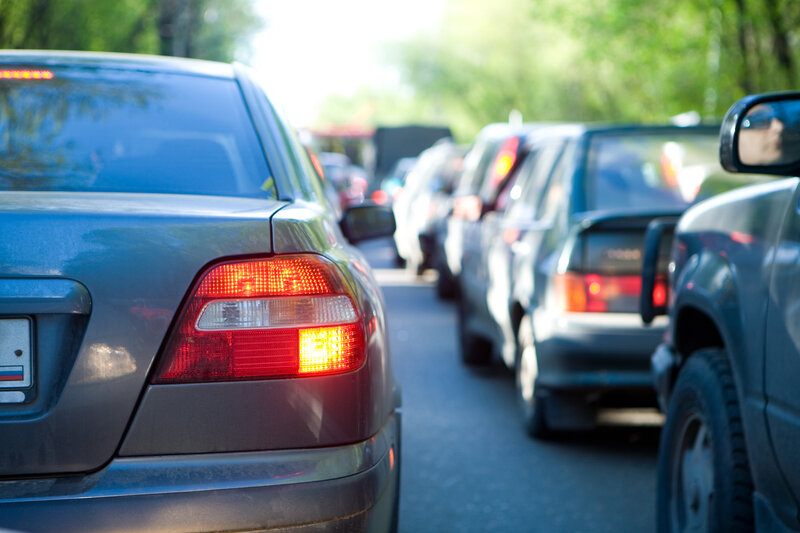
If your car brakes are making loud noises, or you find it harder to stop than normal, you probably have a problem with your car brakes. Brake problems are serious as they could lead to accidents. Today, the team at All Bay Diesel is here to talk about common brake problems all drivers should know.
We are the Bay Area’s trusted mobile mechanic. Contact us today!
Modern cars mostly use two types of brakes:
feature discs with brake pads that attach to calipers. When you press the pedal, the calipers close, causing friction from the brake pads to stop the rotor. Disc brakes are the most common type and work well in wet conditions.
Drum brakes
have brake “shoes” inside the wheel and are attached to calipers. Pressing the brakes causes the shoes to push against the inside of the rotor, slowing the wheel. Drum brakes are the older of the two types and are less common in modern cars.
In addition to these two types, modern cars have emergency brakes. Your emergency brake, or parking brake, activates your braking system without using the pedal. The emergency brake is for parking on inclines and serves as a last-ditch option if your main brakes fail.
Below is a list of some of the most common brake problems. If you experience any of these issues, take your car to a mechanic as soon as possible. Driving with faulty brakes is dangerous and can cause further damage to your vehicle.
If you press down on the brake pedal and it feels squishy or falls to the ground with little resistance, you have a soft brake pedal. A soft brake pedal is extremely dangerous, and you should stop driving as soon as possible.
A soft brake pedal occurs when the brake’s master cylinder brakes and you lose fluid pressure. Check your brake fluid reservoir to see if there are any leaks. If the reservoir is full, your brake cylinder has an internal issue.
Master cylinders are difficult to repair and are a crucial component of your brake system—if yours breaks, you’ll have to replace it.
Another common issue is your car pulling to one side when pressing the brakes. If your car drifts to one side when braking, it’s because one caliper is applying less pressure than the others. The result is one brake disc pushes harder against the wheel than the other, causing the car to pitch to the other side.
Calipers can freeze for several reasons, but the most common is the piston sticking to the bore. In other cases, dust and debris can block the caliper, causing it to rust around the points. The solution to this problem is replacing the rusted caliper.
Calipers can also freeze due to slide pins losing lubrication. Fortunately, you can clean slide pins if they have not sustained damage. Most of the time, it’s not worth restoring a broken caliper.
One other cause of your car pulling when braking is a faulty master cylinder. If this is the case, you’ll need to replace the cylinder to restore your brakes.
One of the most common brake problems is the steering wheel shaking when pressing the pedal. Most of the time, this issue is due to rough spots on rotors from rain, moisture, and high humidity. Uneven rotor spots can wear brake pads, causing the steering wheel to shake when applying the brakes.
You can fix this issue by having a professional resurface or replace your rotors. Resurfacing rotors is the cheapest option, but you won’t be able to do it if the rotors are worn too thin. Your mechanic will measure the thickness of the rotors to determine if you can resurface them.
If the brake pedal pulses up and down when you apply them, the problem is warped rotors. The warped rotors cause the brake pads to pulse, causing the brake pedal to move up and down when you apply pressure. Warped rotors are more likely if you do a lot of highway driving and brake frequently.
Similar to #3, you can fix the problem by resurfacing or replacing your rotors. When you replace or resurface your rotors, we recommend also replacing your brake pads for good measure. Warped rotors often cause smooth spots on brake pads, reducing their effectiveness.
If your car brakes cause the entire car to vibrate, it could be due to faulty rear brakes. In general, a problem with your front brakes will cause the steering wheel to vibrate, while a problem with the back brakes makes it feel like the entire car is vibrating.
You can test your rear brakes by pulling the emergency brake. Emergency brakes typically connect to the rear brakes, so using the parking brake will let you assess the rear brake condition. Do not engage the emergency brake when moving at high speeds, as this could cause an accident.
Brake cylinders use pressurized fluid to generate the force to close brake calipers. Leaking brake fluid typically has a yellowish-brown color and pools under the front half of your car. You can tell you are leaking brake fluid if the brake pedal is spongy or soft.
The cause of the leak could be a broken master cylinder or a cracked brake line. You can tell by checking the brake fluid reservoir. If it is low on fluid, there is probably a leak in your brake lines. You will need to take your car to a professional to replace your brake lines and top off your brake fluid. Do not attempt this repair yourself.
If you experience any of these common brake problems, you need to call an expert as soon as possible. Contact All Bay Diesel online or call today at (925) 522-1780 for brake repairs in the Bay Area!